Winery Best Practices: Cleaning & Sanitation
Management’s Role and Responsibility
Management is legally responsible for operating a winery in accordance with state and local agencies' safety policies. Strong sanitation practices will also improve wine quality, so management should be committed to a cellar sanitation program with straightforward procedures. There should be a well-qualified individual in charge of winery sanitation to be accountable for the program. It is helpful to have weekly sanitation reports given from sanitarians to the top management. If the entire staff is equipped with the tools, resources, and support to implement a winery sanitation plan, the programs will function to their potential. Sanitation protocols should be strictly enforced to truly reap the benefits.Qualifications of Winery sanitation
A winery sanitarian ideally will have the following qualifications:- Basic understanding of the wine-making process.
- Formal education and training in a food/fruit processing plant sanitation.
- Ability to detect existing and potential unsanitary conditions in the winery as well as how to solve the issues.
- Ability to create a winery sanitation program and effectively communicate it to employees.
- Fundamental knowledge of federal, state, and local laws and regulations relating to the winery operation
- Strong sense of environmental sanitation values as related to winery operation.
- Be able to perform all the duties of a winery sanitarian thoroughly:
- Conducting thorough inspections of the winery every week (more frequently during the harvest and crush season)
- Provide a checklist to management with recommendations and follow up ensuring issues have been addressed
- Suggestions from sanitation viewpoint to the management when purchasing and installing equipment
- Sanitarian supervision plans for larger wineries
- Organized training for the entire staff
Sanitarian Tools
The tools needed for sanitary plans will vary based on several factors such as winery size and location, kinds of equipment, and types of products. However, most wineries will call for:- Ample hot and cold water supply
- Various detergents, sanitizers, and other chemicals
- Steam and /or high-pressure washers
- Vacuums
- A variety of nylon brushes, brooms
- Blacklight equipment for detection of rodents and molds
- Safety goggles, gas masks, rubber gloves, etc.
Worker’s Training
One of the most critical components of winery operation safety is well-trained employees. Winery staff must be in good health with a good sense of personal hygiene. Those tackling sanitation should be knowledgeable in handling cleaning and sanitizing compounds, well-versed in various cleaning equipment, know sources of contamination, and trained in cleaning various types of surfaces. They must understand sanitation plans dealing with pest control as well as liquid and solid waste disposal. All workers must be trained in sanitary handling of grapes and wine with a formal training program for winery cleaning and sanitation, resulting in a superior product and a more efficient operation. Mishaps happen, which is why NJ winery insurance is needed to protect your business.Wine Spoilage Organisms
Microorganisms are associated with fermented food products, including wine. In the wine production process, many microorganisms such as molds, yeast, and bacteria are involved. Microbes found in the wrong place at the wrong time cause spoilage, which can produce inferior tasting wine and foul odors. Winemakers must stick to a particular microorganism level. They must understand when and where they are needed to properly control the wine-making process. The best way to do this is with a rigorous cleaning and sanitation program. They will need to pay attention to the raw material considering how clean the fruit is, if it is healthy, diseased, or damaged. They will also need to consider the shipping distance, the temperature of the fruit in transit, and the use of sulfur dioxide. Equipment used such as crushers, presses, pumps, and hoses will also greatly influence the entry of wine spoilage microorganisms. The growth of undesirable microorganisms on these items can easily cause spoilage of the product.About David G. Sayles Insurance Services
At David G. Sayles Insurance Services, we help our clients decide which of these options is best for them based on their current situation and risk factors. Contact us at 1-855-977-1842 or insureme@dsayles.mysites.io for a consultation!About David G. Sayles Insurance Services
At David G. Sayles Insurance Services, we help our clients decide which of these options is best for them based on their current situation and risk factors. Contact us at 1-855-977-1842 or insureme@dsayles.mysites.io for a consultation!
Share this
We also offer package policies, including Business Owners Policies and Commercial Package Policies, and will be happy to review and determine which is right for your company and industry sector. Our current clients
include importers & exporters, wineries &
breweries, manufacturers, and non-profits, to
name a few.

We’re always
accountable to you.
Let David Sayles Insurance Services help you with your insurance program. Our unique talented and experienced team of professionals is ready to provide you with the service you deserve and the insurance you need. Give us a call at 800-439-0292 to go over your specific needs.
David G. Sayles Insurance Services
Copyright ©2021, David G. Sayles Insurance Services. All Rights Reserved.

